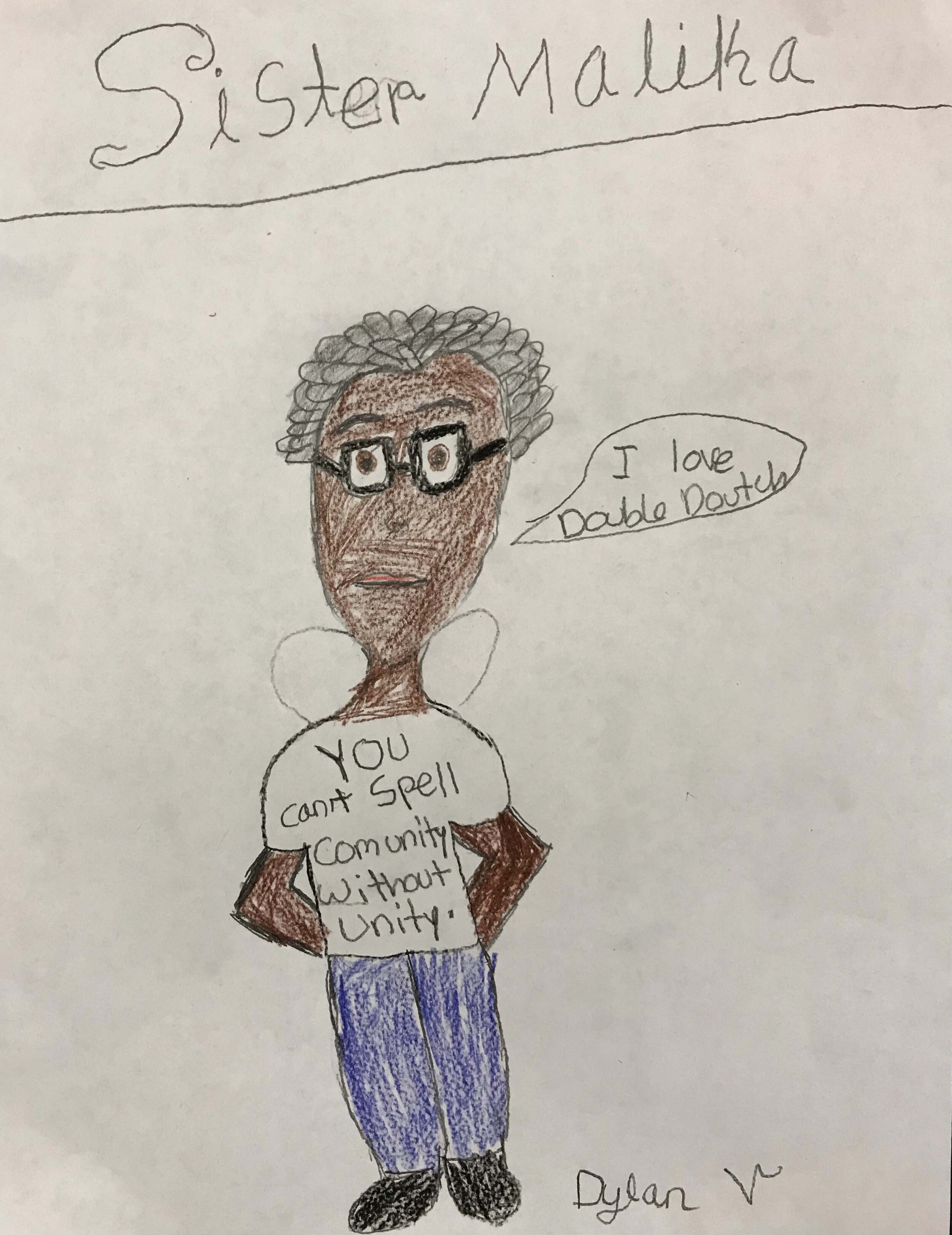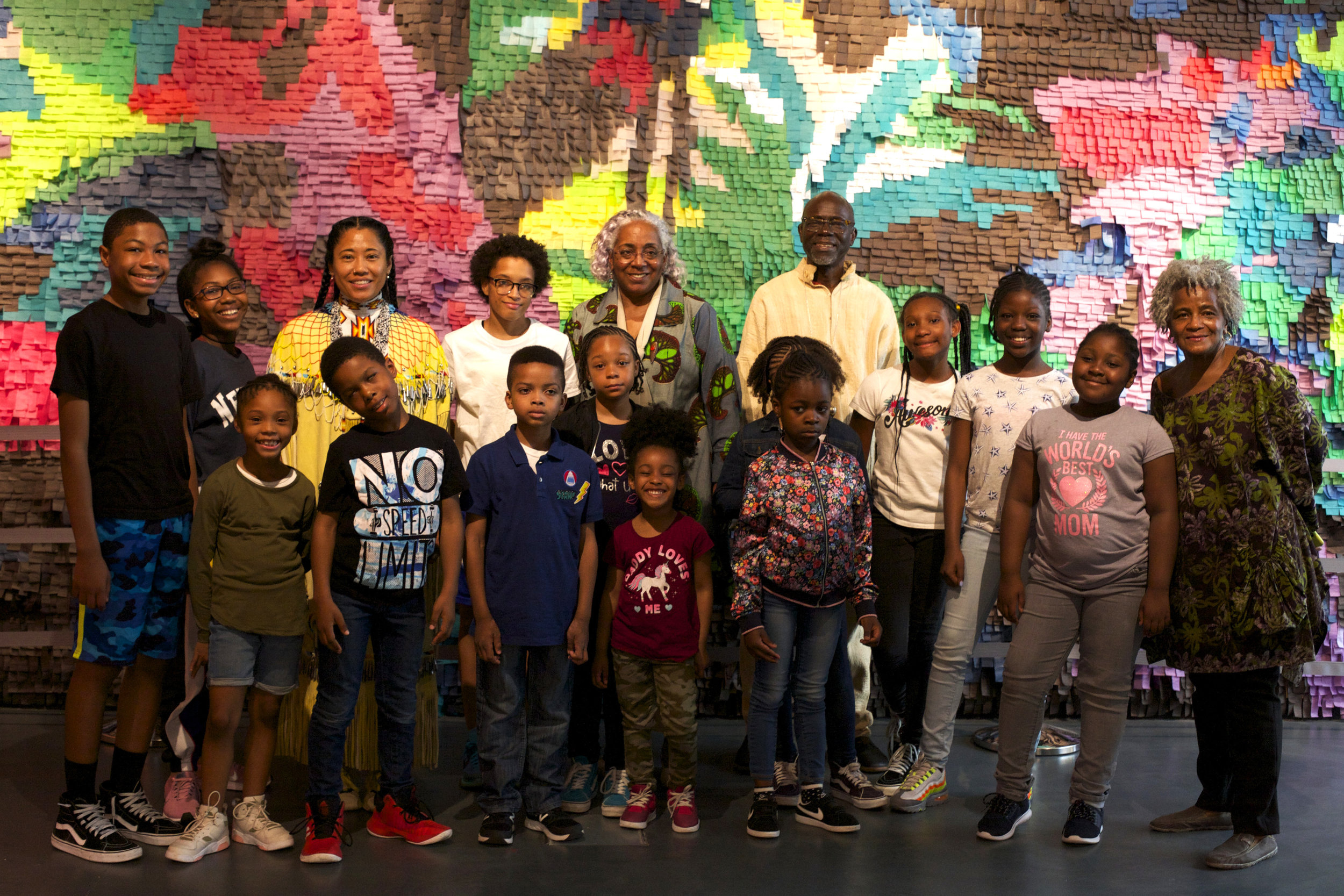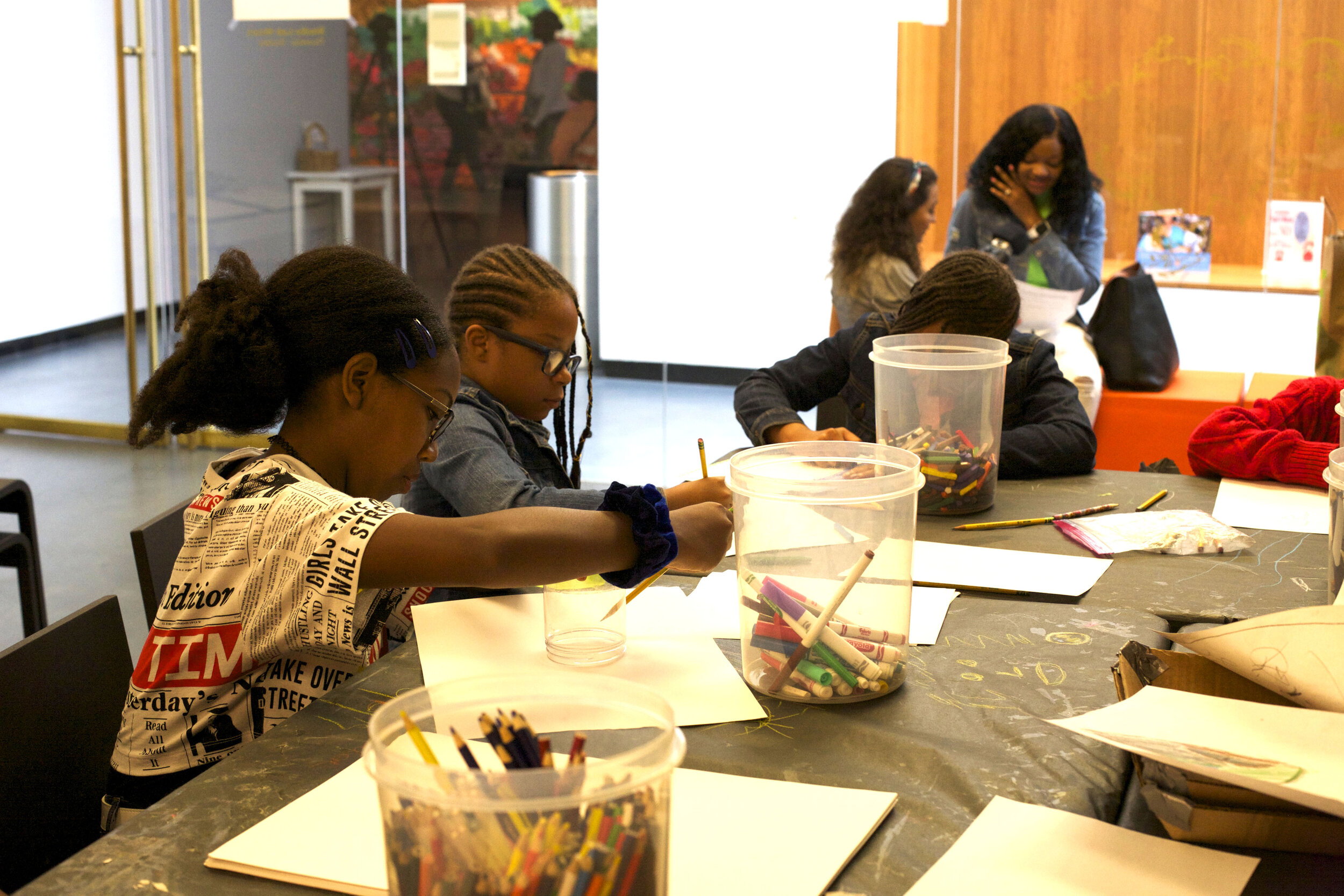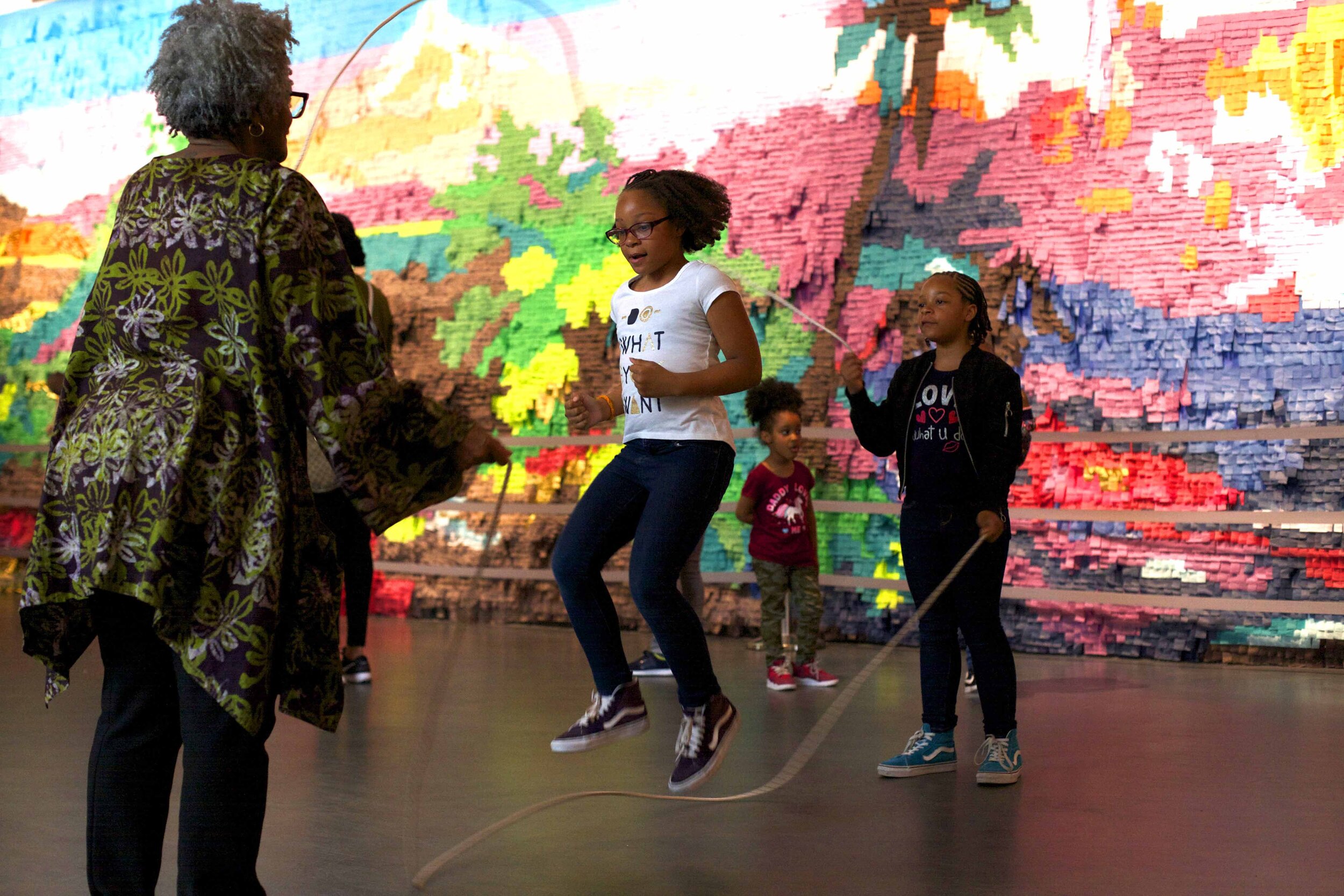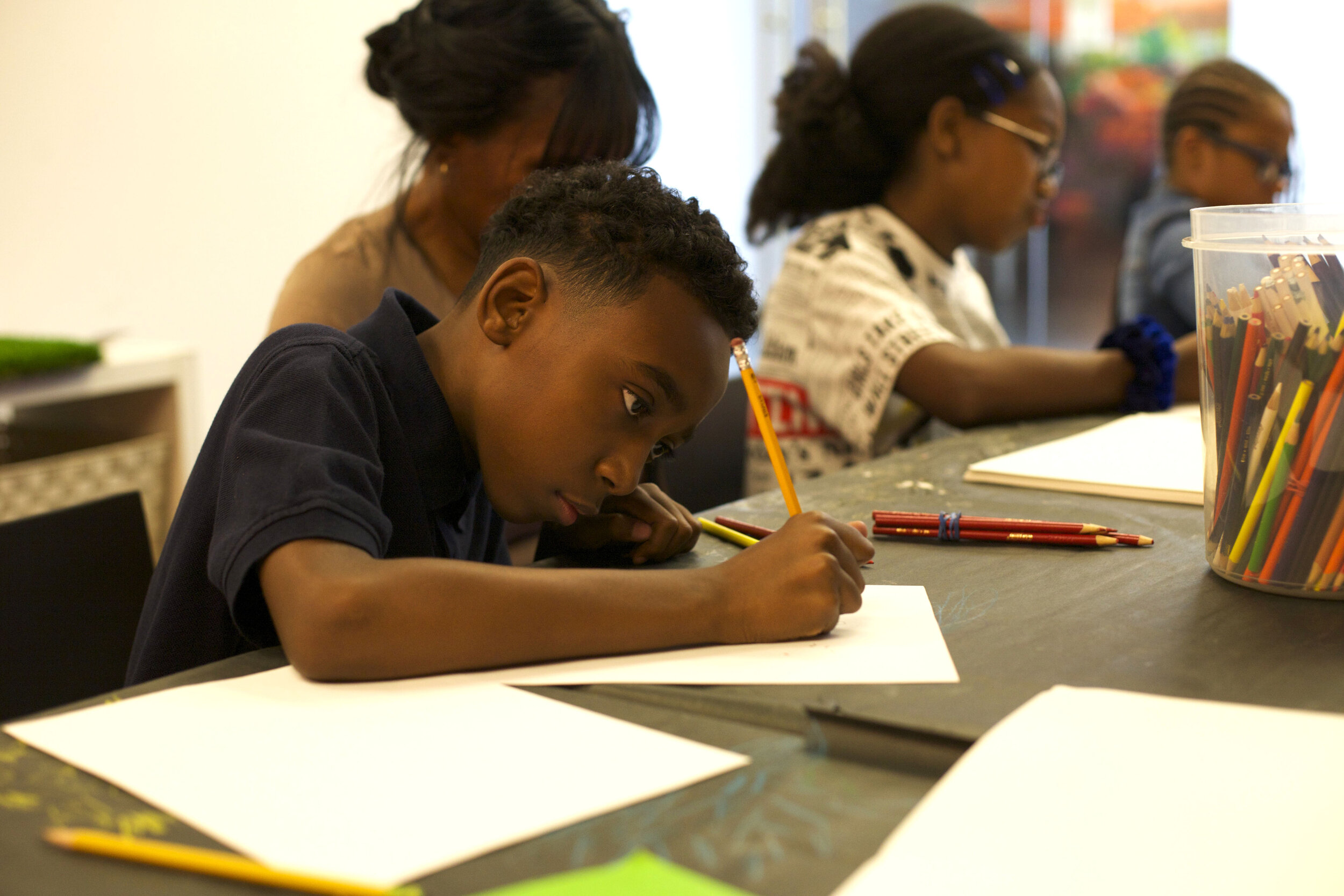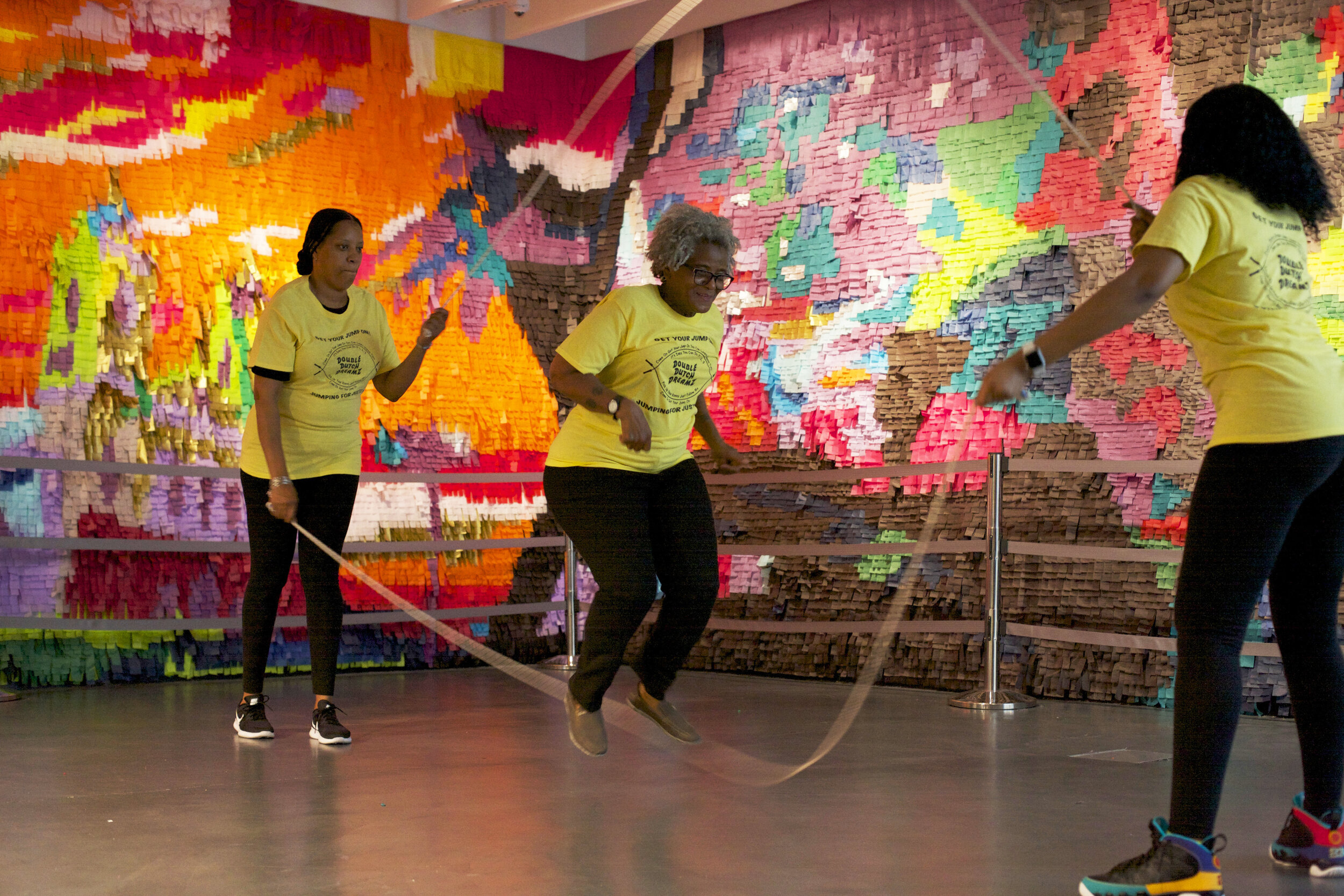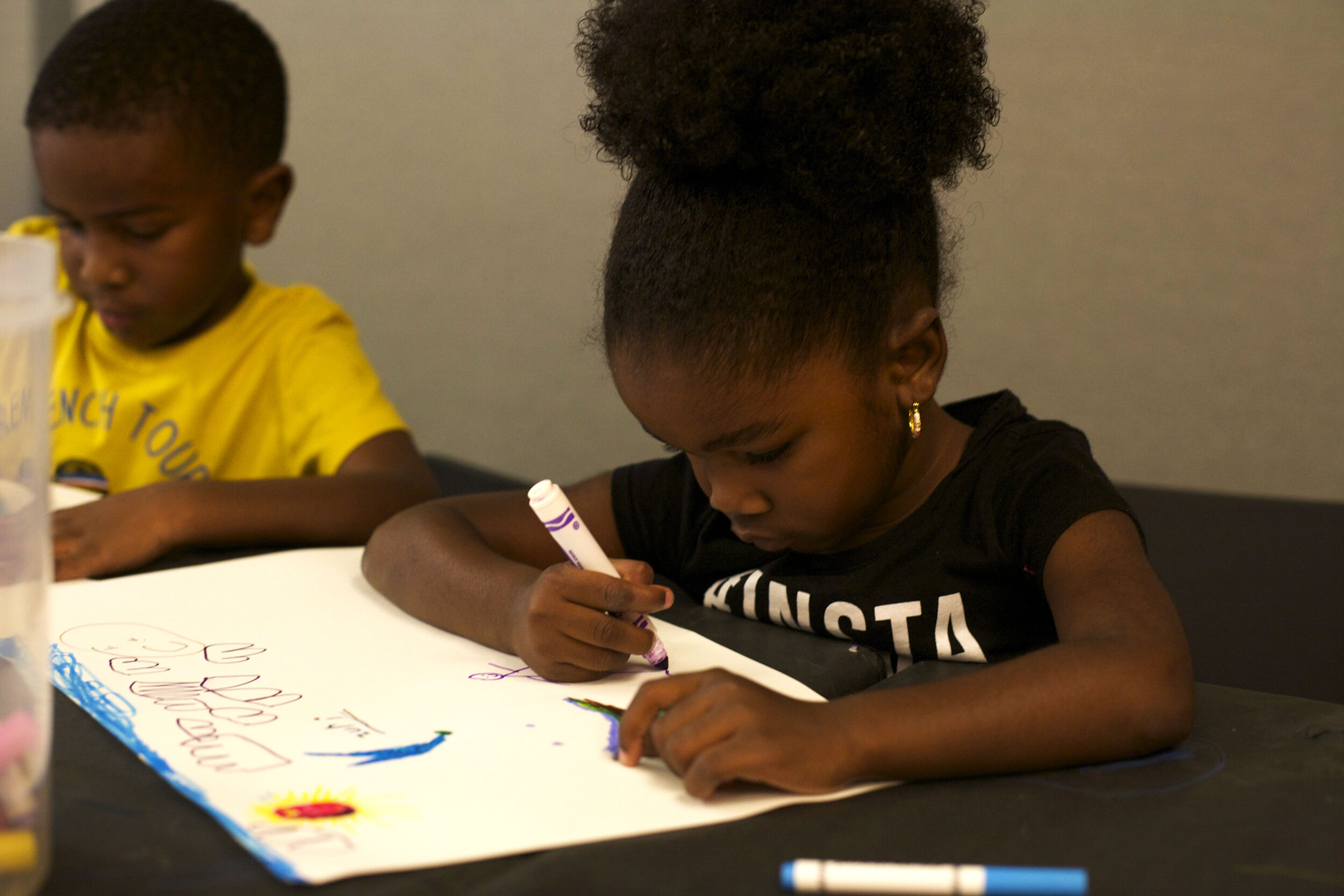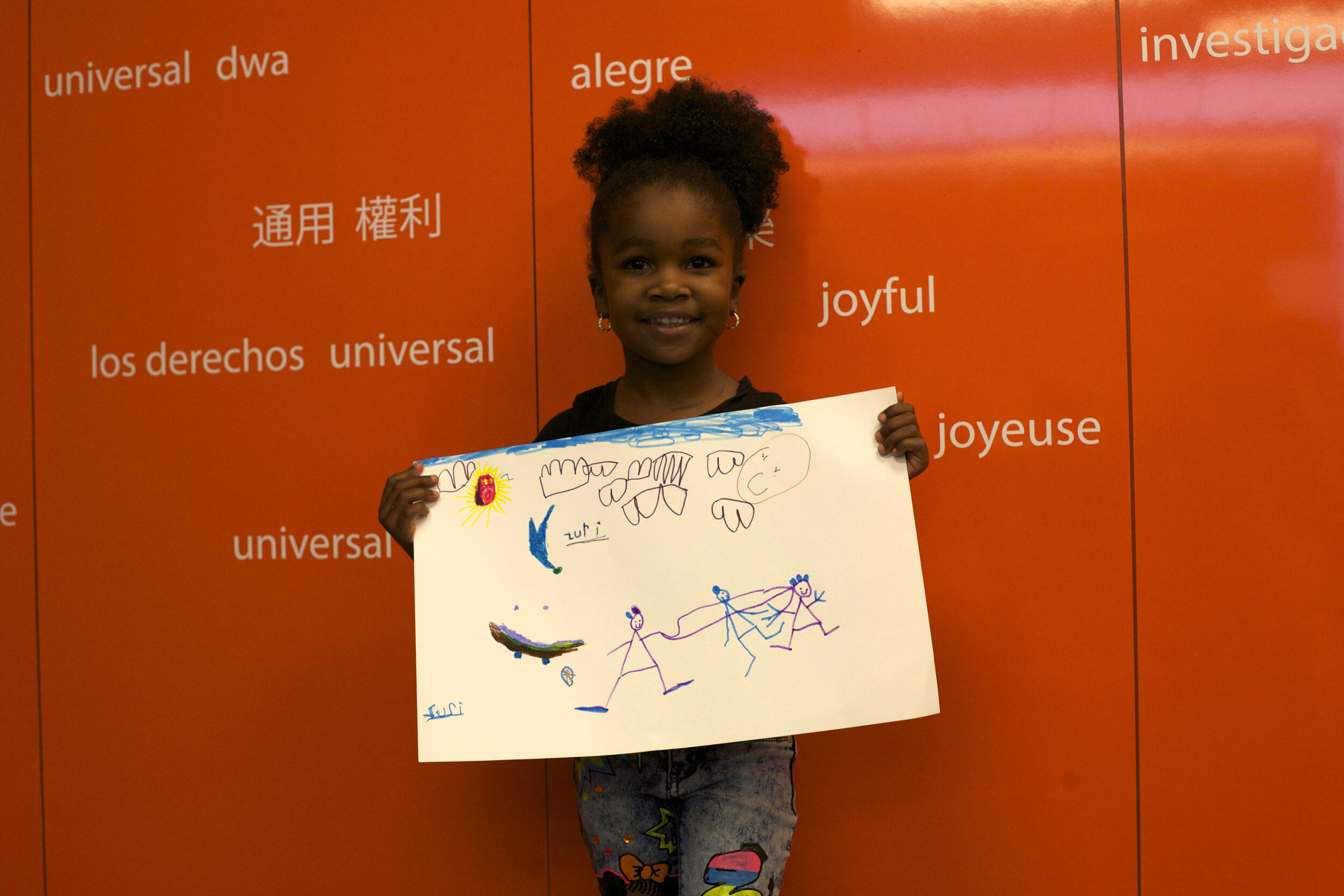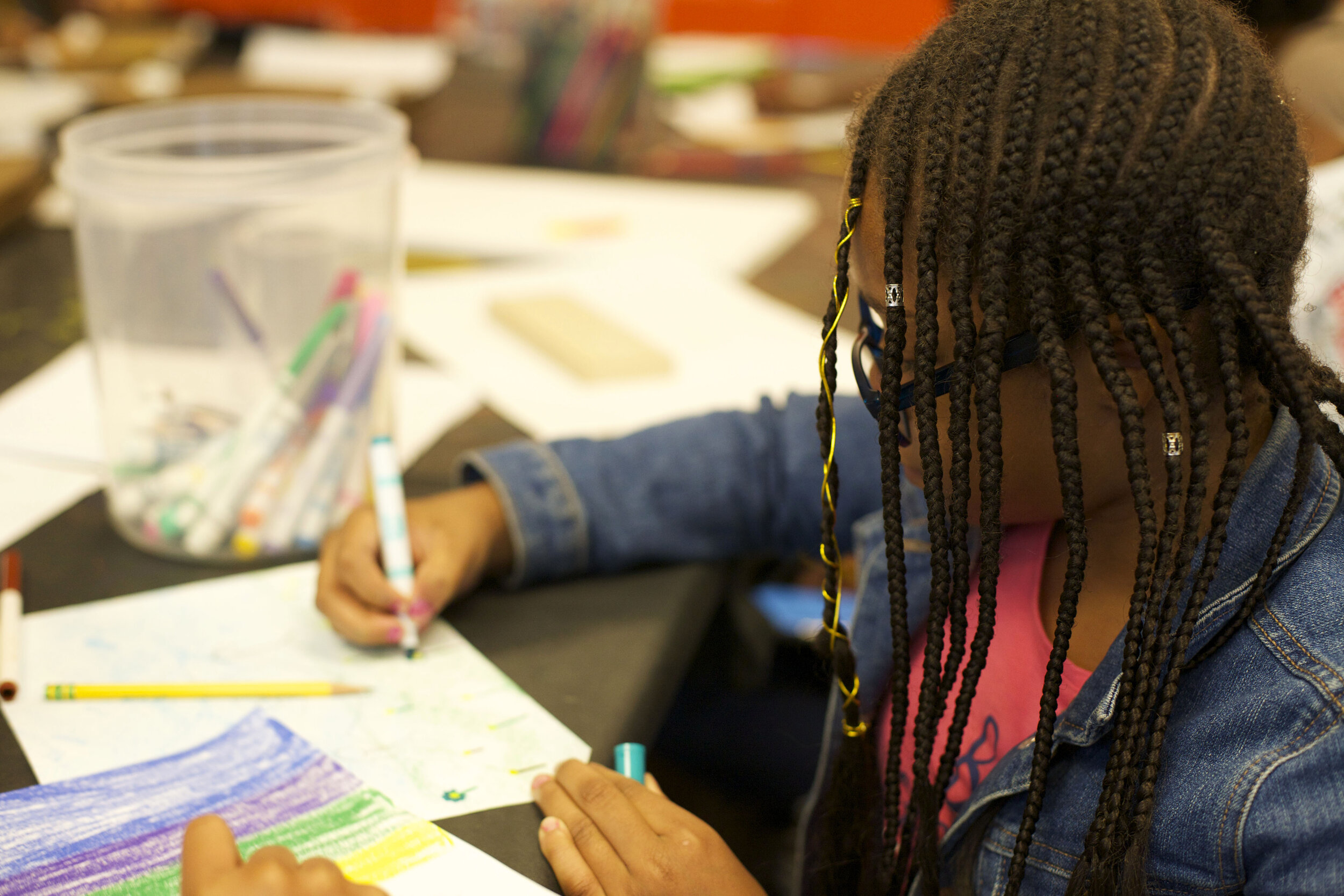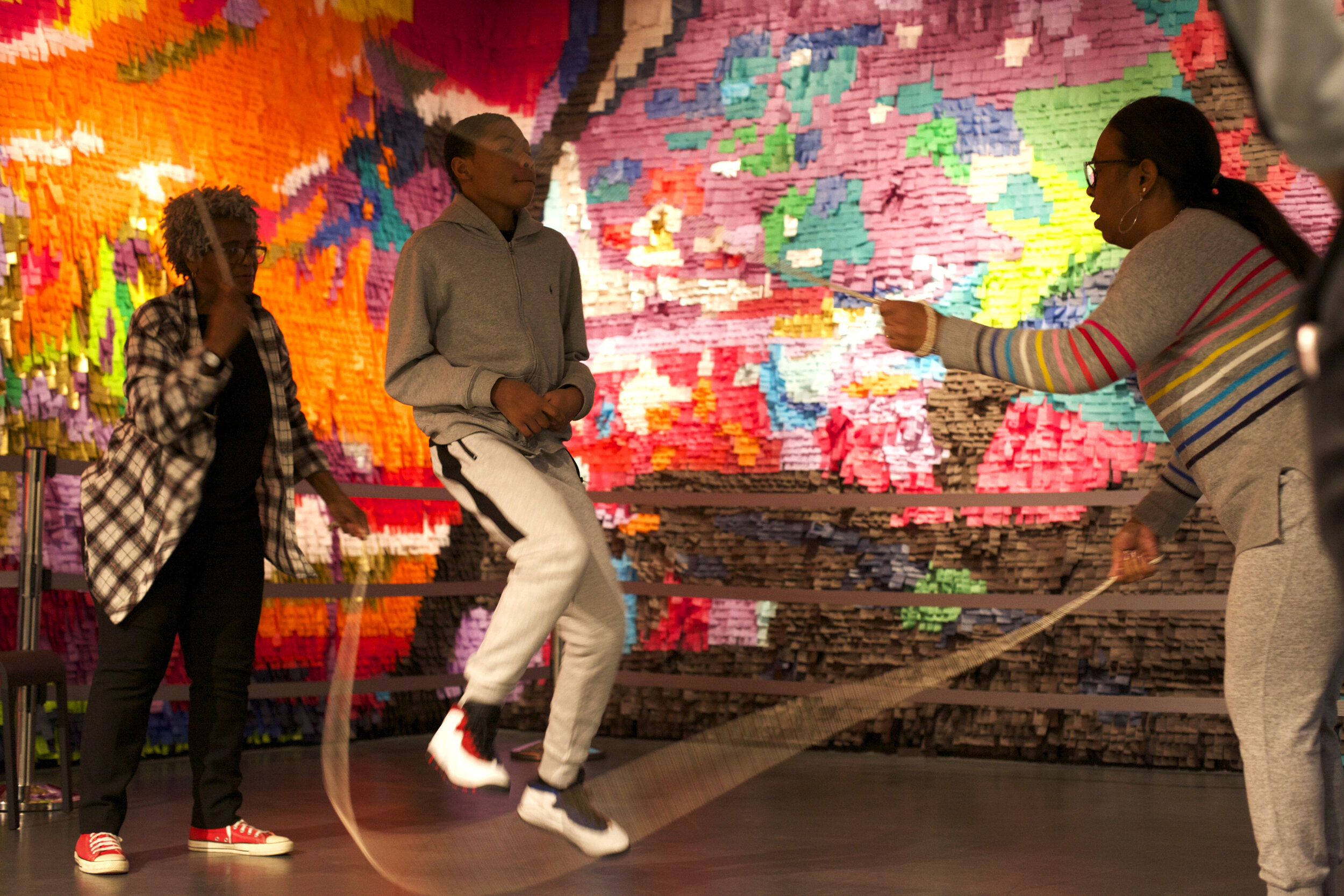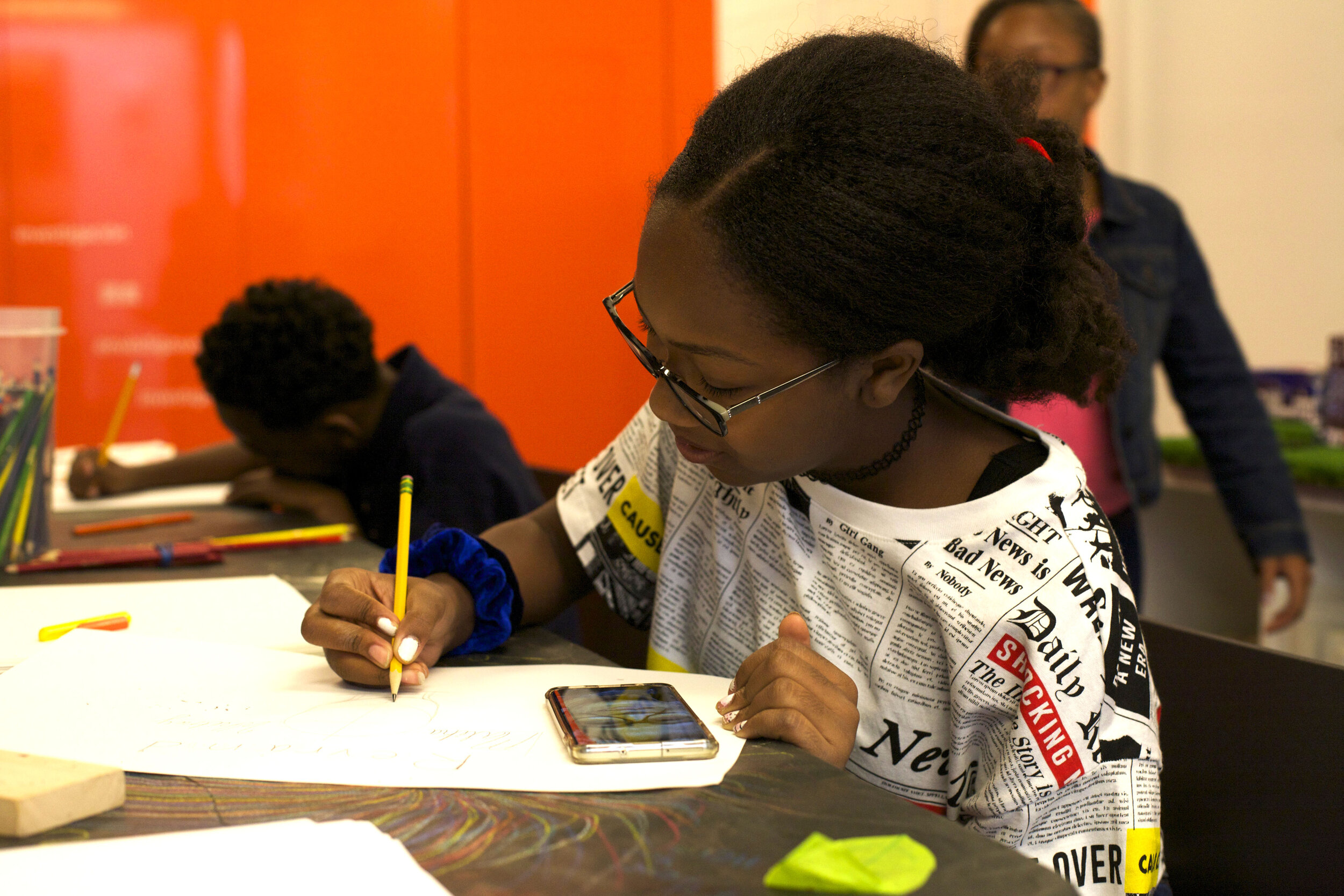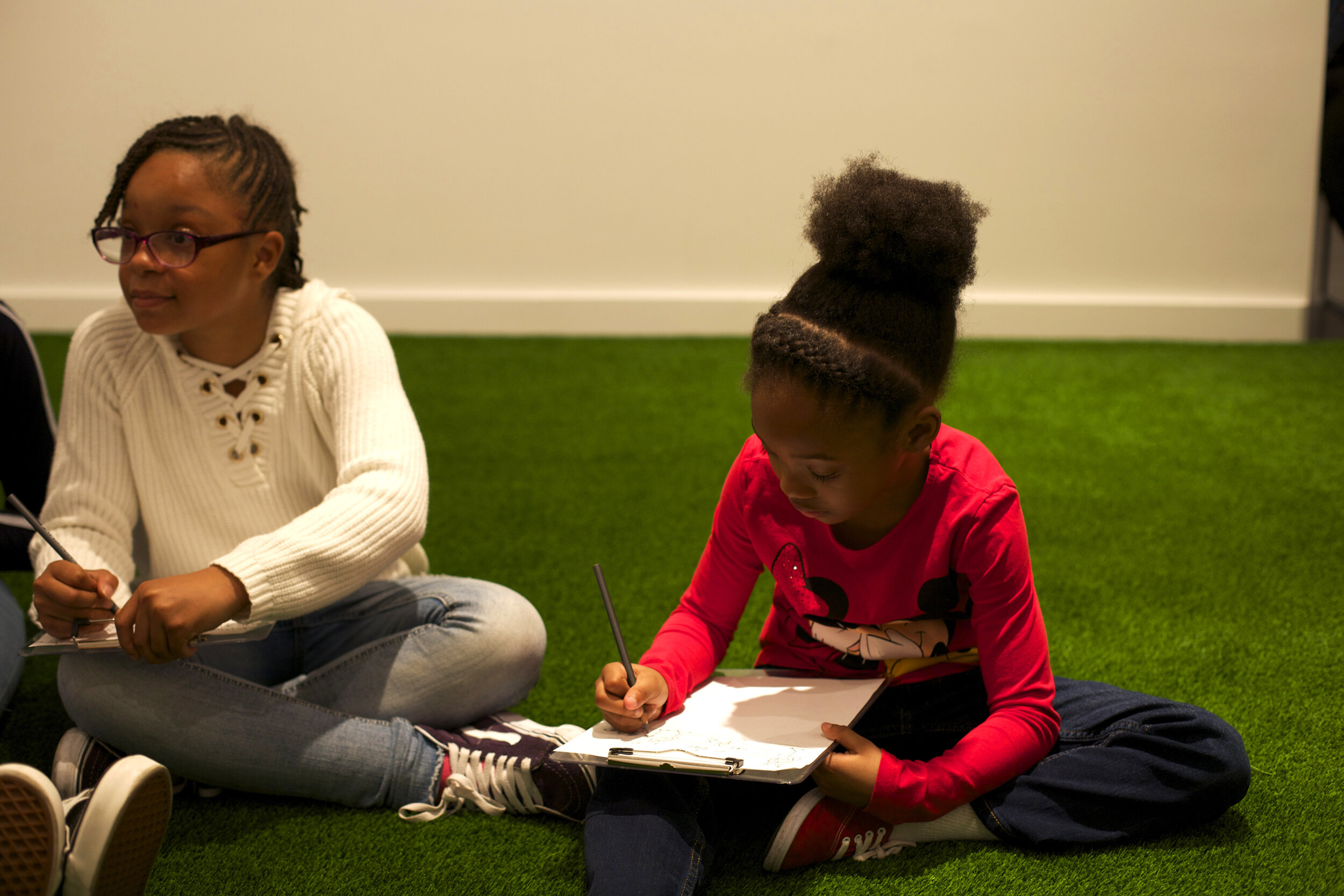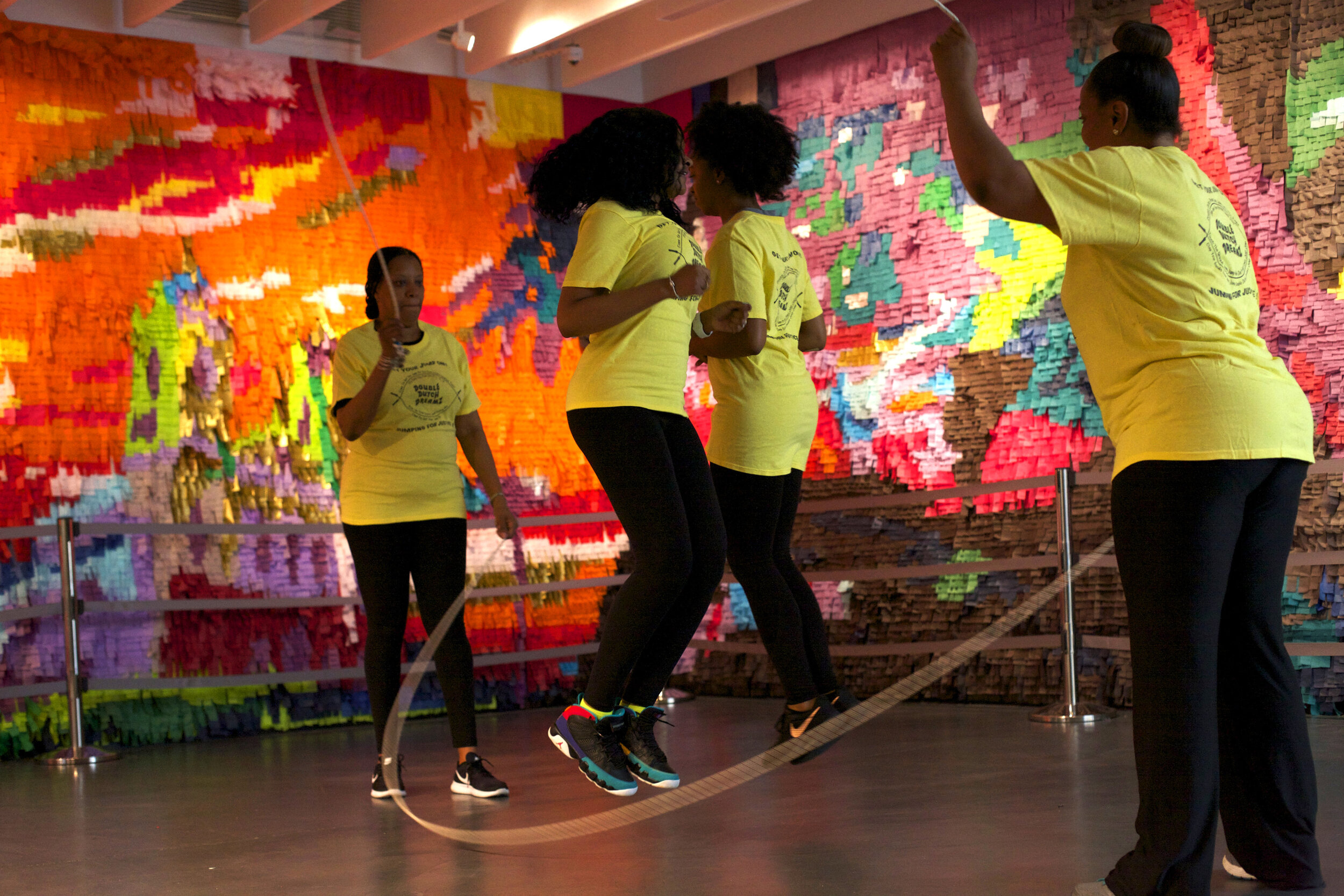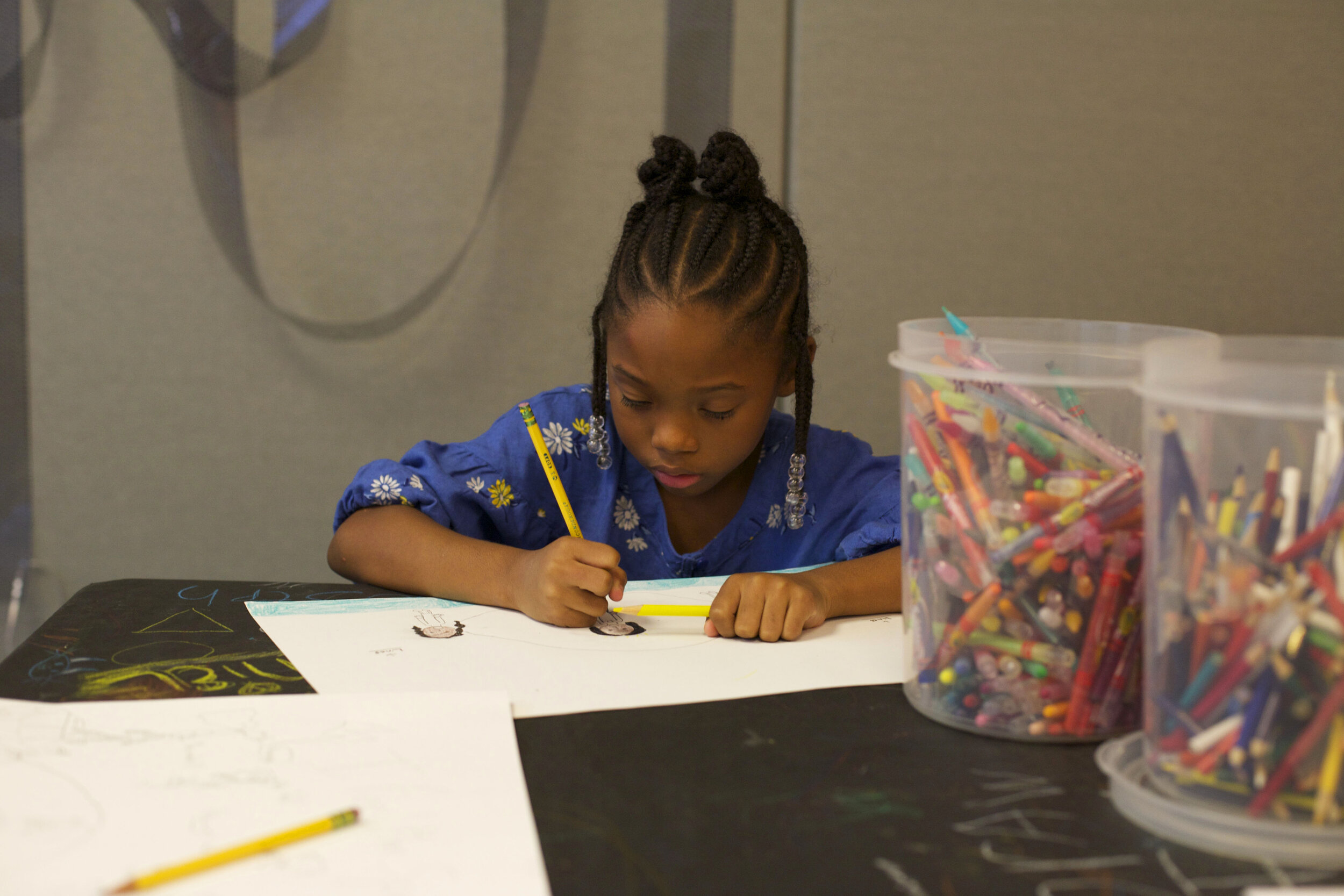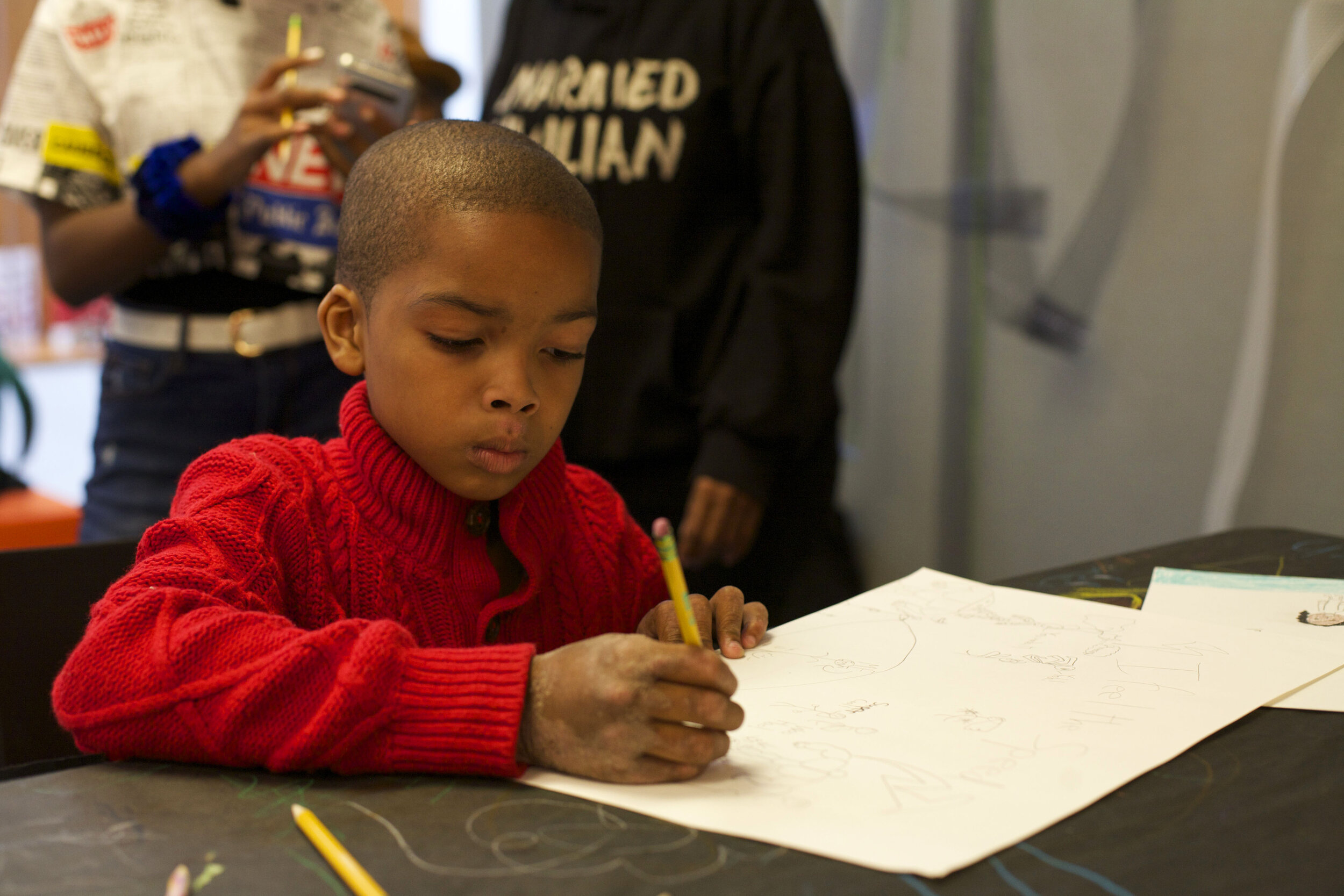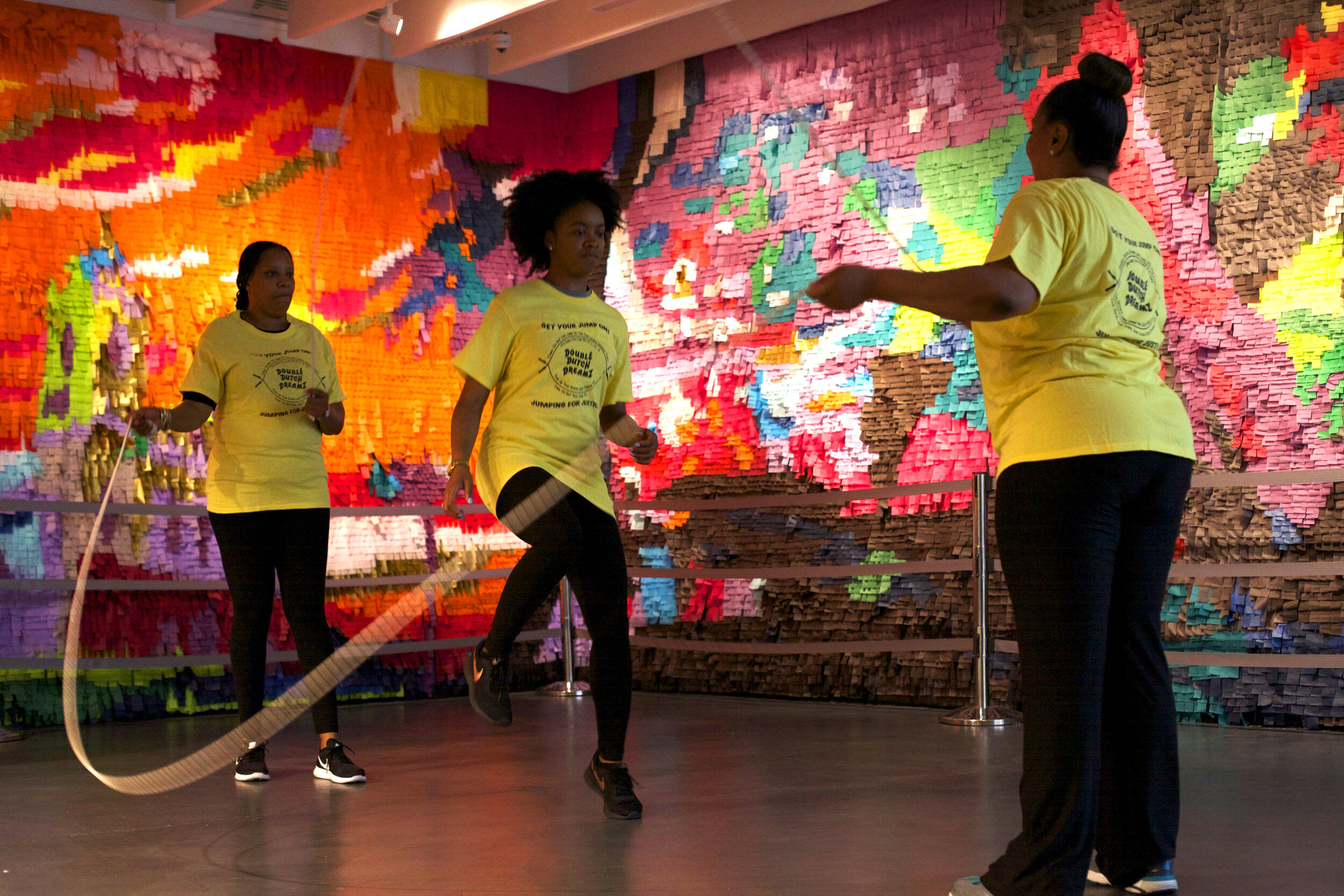Rev. Malika Leigh Whitney and Double Dutch Dreamz
When Rev. Malika Lee Whitney was a child growing up in 1940s Harlem, street games were very popular among kids. Hopscotch, jacks, stick ball and stoop ball were played until the sun went down. But there was one game that she particularly loved — jumping Double Dutch.
For the past 14 years Rev. Whitney has been running the youth development program Double Dutch Dreamz in Harlem and around New York City. Now in her 70s, she still jumps. She says it contributes to her overall well being, exercising her heart and balancing her body through its meditative rhythms.
Some of her young jumpers got to ask her about her passion during a podcast workshop at The Sugar Hill Children’s Museum of Art and Storytelling and created this audio postcard. Listen to more of our stories.
Listen to Rev. Whitney’s Story
The Grandparents StoryLab Featured on NPR!
NPR's The Pulse featured our story on Rev. Malika Leigh Whitney and Double Dutch Dreamz.
“When I double dutch I feel free”
This story came out of a podcast workshop The Grandparents StoryLab ran at the Sugar Hill Children’s Museum of Art and Storytelling with Rev. Whitney’s Double Dutch Dreamz crew.
Zariah: Why do you like double dutch so much?
Rev. Malika Lee Whitney: Well I love it for what I see it brings out of the young people that I work with and I really enjoy it because I know it's a great way to exercise. And it's a wonderful way to make friends. And it gives you an opportunity to test your skills and be confident
The heart is racing, you're excited. You feel like everything is working for you. You know the feet are moving the correct way. You're maintaining a rhythm. Very often you're being watched somewhere either by your friends if it happens to be on a stage... that encourages you. So you feel good about yourself.
You have a sense of accomplishment.
Talir: What was it like doing double dutch back then?
Rev. Malika Lee Whitney:There was a lot more opportunity to do it…on the concrete, in front of your building, in parks… It was a lot safer but also there were always adults looking out for you wherever we were. Street games growing up was something that was always very popular among children in the neighborhood. So there were games where we drew outlines of games like hopscotch for fun. There was a fire hydrant in the summertime that was turned on and that was your sprinkler and means of cooling off. They were jacks and badminton and all kinds of fun games.
Tilar: When you had boys doing Double Dutch did you ever have a crush on one of them?
Rev. Malika Lee Whitney: I was wondering when this was going to get personal. Well, one of the things that I can tell you, is that if you were jumping in the community, like in front of your building you put your best jump when you saw someone that you liked!
Dejany: How has Harlem changed from when he was growing up to now?
Rev. Malika Lee Whitney: Oh it's changed quite a bit. Some of what I'm seeing is the cultural footprint of the community transitioning. By that I mean a lot has to do with the housing and gentrification. And while it's perhaps something that's likely to happen where the community changes in ways that is not always comfortable for everyone I feel like we have to honour those people who have given a community it's trademark, what it's known for. We really don't want that to be erased.
The history of Harlem is like none other you know vibrant in the way of its music and culture, literature theatre, dance all aspects of culture. People of great minds folks who've invented. People of great minds folks who've invented things.
There's just so much richness here in this community.
Milan:Why did you choose to work with youth and teach children?
Rev. Malika Lee Whitney: I think working with children is something that I inherited from my mother because she also not only took care of me but she also took care of children in the neighborhood.
There is a lot of seriousness going on in the world and I think you can use sport and play as a means of being able to change the course of ideas. In Double Dutch program one primary part of what we do is under the umbrella of “social justice”. So we write rhymes that address issues of racism, sexism and all the other ‘isms’.
So using games as an approach is a way to get young people involved... and look what it yields. Games can help. They’re like oh you're doing that? I want to do it too... Can you show me how? You know cooperative learning through games is a wonderful way to help a child grow up.
It invites people of all cultures all backgrounds all sizes. Ropes don't discriminate. If one does have some physical limitations we can find some kind of way that they can participate you know even if doing the call and response rhyme chants.
So it doesn't doesn't discriminate by age.
If the knees continue to work I think I’ll be doing it until I’m 100.
Bonus Audio! Double Dutch Haiku Poem
Workshops
This story and art came out of a podcast workshop that The Grandparent’s StoryLab held in collaboration with The Sugar Hill Children’s Museum of Art and Storytelling, Double Dutch Dreamz, and The Significant Elders.
To book a podcast workshop with The Grandparents Storylab please email grandparentsstorylab@gmail.com





